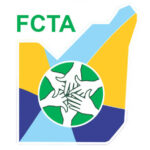By Ben Kati
A non governmental organization, Helpline Foundation for the Needy, Abuja has begun moves that would assist in sustaining the indigenous people’s culture.
The Foundation with support from the MacArthur foundation, recently commenced the first set of sensitization training to curb the effect of urbanization on the Abuja Original Inhabitants.
Recently, Helpline signed an agreement with MacArthur Foundation and Resource Centre Human Right Civic Education (CHRICED) on a project targeted at promoting the socio-cultural rights of the natives.
At the weekend, over 500 vulnerable women and youth trainees were tought about fundamental information on skills in the production of the traditional attires of the original inhabitants of the FCT which marks one of the remains of the traditions of the people before the coming of urbanization and also strategies to advocate for their traditional heritage.
During the sensitization training, the President of the Foundation, Dr Jumai Ahmadu revealed that the partnership with MacArthur Foundation and Resource Centre Human Right Civic Education (CHRICED), if actualize will Provide way to address cases of urbanization on the Original Inhabitants that had led to lost of homes, lost of livelihoods, scattered indigenous people in the territory.
The President who was represented by the Project Director, Mr Arome Onoja explained that the training also supports the organisation’s strategic agenda that will deepen its work with MacArthur Foundation in order to annihilate the suffering of original inhabitant of FCT who have been greatly marginalized over the years.
Ahmadu, said, “The project is in line with the foundation’s behavioural change objectives aimed at an infusion of the core values of transparency and integrity driven of what Helpline Foundation stands for. Our major focus in this project is to see that the traditional heritage of the people is preserved through empowering local community vulnerable women and marginalized youth on skills necessary to continue the production of the traditional attires.
“Secondly, to advocate for and educate the people on government approved procedures of Resettlement and compensation of those whose ancestral lands has been taken over by urbanization and thirdly, to create general awareness of the Original Inhabitants of FCT”


